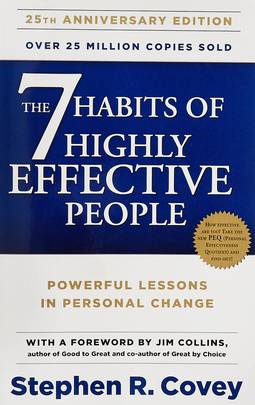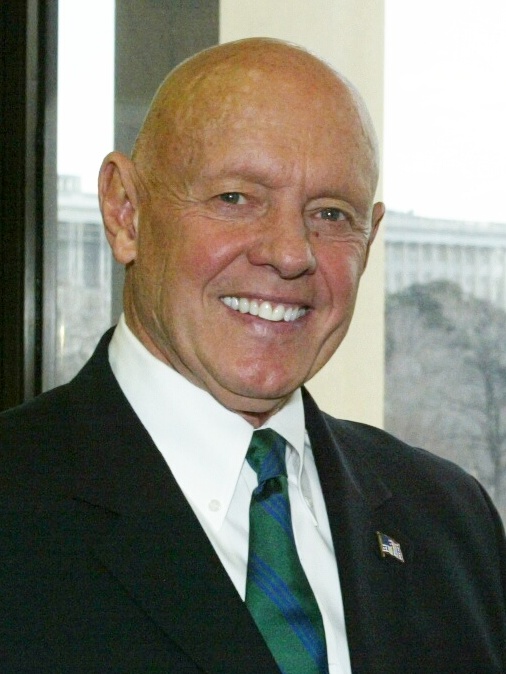Introduction
“The 7 Habits of Highly Effective People” by Stephen R. Covey is one of the most influential books on personal development. It introduces seven habits that can transform the way you live and work, helping you to become more successful and efficient. Covey’s approach focuses on character development and lasting change, emphasizing inner principles rather than short-term results. Let’s break down each habit in simple terms to understand how these can be applied in daily life.

About the Author
Stephen R. Covey was a renowned American educator, speaker, and author. He earned worldwide fame with his book, which continues to impact people across the globe. His work focuses on leadership, time management, and personal effectiveness.

PHOTO : Wikipedia
The 7 Habits Explained
1. Be Proactive
This habit is all about taking responsibility for your actions and decisions. Rather than blaming others or circumstances, being proactive means you control your own destiny. You choose your behavior based on values, not moods or situations.
- What this means: Instead of reacting to things that happen to you, act first and take control.
- Example: If it’s raining, instead of getting upset, carry an umbrella and plan for the weather.
2. Begin with the End in Mind
Covey suggests that you should have a clear vision of your goal before you start anything. Think about where you want to go in life or in any task and work backwards to figure out the steps to get there.
- What this means: Always start with a clear purpose in mind.
- Example: When you plan a trip, you know where you want to go. Life should be the same — have a clear picture of what you want to achieve.
3. Put First Things First
This habit is about prioritizing the most important tasks. Focus on the things that matter most, not just the urgent things that pop up. Manage your time by focusing on activities that lead to long-term goals.
- What this means: Organize your time around what’s most important, not what’s most immediate.
- Example: If studying for a test helps you reach your career goal, focus on that rather than spending time on distractions.
4. Think Win-Win
Covey teaches that in relationships and interactions, you should aim for solutions where everyone benefits. Rather than trying to “win” at the expense of others, look for agreements that satisfy both parties.
- What this means: Strive for cooperation and mutual benefit in your dealings with others.
- Example: In a work project, instead of dominating the team, collaborate so that everyone feels they contributed and benefited.
5. Seek First to Understand, Then to Be Understood
Listening is the key to this habit. Covey emphasizes that you should truly understand other people’s perspectives before offering your own. By listening deeply, you can respond more thoughtfully and build better relationships.
- What this means: Listen carefully to others before expressing your own views.
- Example: When a friend shares their problem, instead of offering advice right away, first listen and understand their feelings.
6. Synergize
Synergy means that the whole is greater than the sum of its parts. By working with others, combining different ideas and strengths, you can create better results than if you worked alone.
- What this means: Work together with others to create something greater than what you could achieve alone.
- Example: A diverse team, where people bring different skills and ideas, can solve problems better than a single person working alone.
7. Sharpen the Saw
This final habit is about self-renewal. Just like a saw that needs sharpening to cut wood effectively, you need to take care of yourself — physically, mentally, emotionally, and spiritually. Regular self-improvement and rest are crucial for long-term effectiveness.
- What this means: Take time to recharge and improve yourself regularly.
- Example: Exercise, read, meditate, or take breaks from work to maintain your energy and enthusiasm.
Conclusion
Stephen Covey’s “The 7 Habits of Highly Effective People” offers timeless wisdom on personal growth and success. These habits, when practiced regularly, can transform your personal and professional life. The core message is to focus on building your character, working well with others, and continuously improving yourself.
Reference:
Covey, S. R. (1989). The 7 Habits of Highly Effective People: Powerful Lessons in Personal Change.

Good